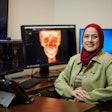
A new group of dentists from at least 15 U.S. states aims to put a stop to the spread of Alaska-style dental health aide therapists (DHATs) and similarly empowered midlevel providers.
"Each state must determine its own fate, but I submit to you that Texas is ready, willing, and able to slam the door and silence the drumbeat of nonprofessional providers performing irreversible procedures," said Matthew Roberts, D.D.S., at a May 6 meeting of the Texas Dental Association (TDA) delegates.
Dr. Roberts, immediate past president of the TDA, convened the first meeting of what he calls the Austin Group (otherwise known as the States Strategy Conference) on March 4 and 6. Some 50 delegates from dentists' groups in Alabama, Delaware, Florida, Georgia, Illinois, Indiana, Kansas, Louisiana, Mississippi, New Jersey, North Carolina, Pennsylvania, South Carolina, Texas, and Utah attended the meeting, according to Dr. Roberts. They drew up policy documents and planned to pressure the ADA to take a firm position on the issue, he said.
Asked in a DrBicuspid.com interview to define "irreversible procedures," Dr. Roberts said he meant removing tissue from a patient's mouth. He noted that he was not speaking for the TDA.
— Matthew Roberts, D.D.S.
He said the Austin Group was concerned about dental care providers such as the Alaskan DHATs who, with two years of education after high school, are permitted under a federal mandate to extract teeth and place restorations in remote Alaskan villages. A new law in Minnesota also allows groups of midlevel providers to pull teeth and prep for restoration. Legislators and health advocates, including some dental groups, have proposed similar new licenses in other states, such as an advanced dental hygienist -- a hygienist who, after additional training, could also extract teeth and place restorations.
The new U.S. healthcare reform bill passed into law March 22 provides funds to set up 15 pilot programs for midlevel providers in other states. The law also allows the DHATs now operating in Alaska to work in other states if authorized by state law and requested by an American Indian organization.
Debate over these provisions has split organized dentistry. The ADA, the Academy of General Dentistry, and five dental specialty organizations are opposed to licensing DHATs outside Alaska, while the American Association of Public Health Dentistry, the Association of State and Territorial Dental Directors, and several nonprofit advocacy groups have spoken out in its favor.
So how could a new group influence these trends? In his speech, Dr. Roberts said the Austin Group developed three policy statements asking for action from the ADA. He did not disclose any details of the statements, however, other than emphasizing that the ADA should maintain its current position on midlevel providers. He also told DrBicuspid.com he is not ready to release any details of the strategy his group is considering.
A spokesperson for the American Dental Hygienists' Association said her organization had no comment on the Austin Group.
ADA meeting planned
In an interview with DrBicuspid.com, ADA President Ronald Tankersley, D.D.S., said he didn't anticipate any change in the ADA's position on midlevel providers. "Our position basically is that doctors should do treatment planning, oversight, and surgical procedures," he said.
The Austin Group is not the only group of dentists pushing the ADA to take a hard line, he added. "I'm aware of these groups meeting outside the ADA umbrella," he said. "That's their right. Depending on the different states, we do have members who want to approach this in different ways. We would like to get them all under one roof to talk about their problems."
To that end, the ADA is inviting dentists from around the country to its Chicago headquarters July 18 for a Conference on Workforce Issues. The invitation-only meeting will not set policy, however. An ADA House of Delegates resolution adopted last year specifically leaves workforce needs to the jurisdiction of the states.
"All dentists really want the same thing," said Dr. Tankersley. "Almost all of us understand that the real tragedy is that 35% of the population is underserved, and we want to serve that population. But that doesn't mean we have to violate the policies of the ADA to get there."
The ADA lobbied unsuccessfully in the healthcare reform process to expand Medicaid dental benefits to adults and increase its reimbursements for dentists. Now, Dr. Tankersley said, the association is trying to build coalitions with other organizations to strengthen its future campaigns for similar goals.
"Depending on your particular strategy, you can set your sails differently, but we're all heading for the same goal."
Copyright © 2010 DrBicuspid.com



















